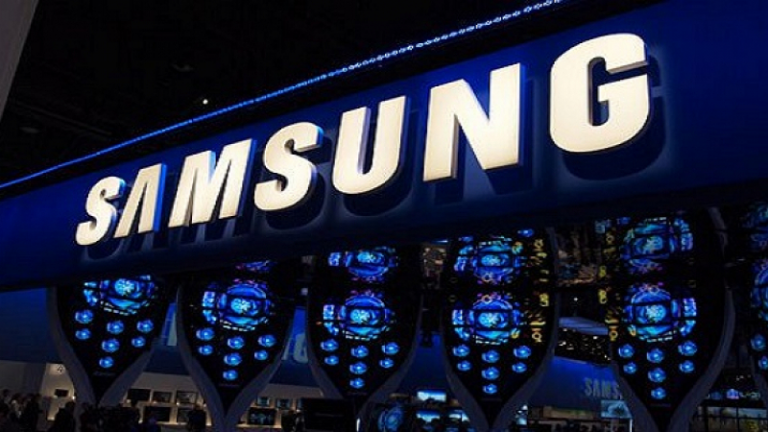
Samsung, the world’s largest maker of random-access memory chips has reported a record 95% operating profit loss, following a 22% sales slip from the previous year.
This happened as a result of a significant decline in sales of consumer devices such as smartphones and computers. The dip was notable in the company’s report earlier this month, where it estimated second-quarter revenue to be 60 trillion Korean won and operating profit to be 600 billion Korean won, according to CNBC.
Samsung said in its earnings report that it hopes for a recovery as it shifts focus on higher-end products but expressed concern about macroeconomic risks.
Register for Tekedia Mini-MBA edition 19 (Feb 9 – May 2, 2026): big discounts for early bird.
Tekedia AI in Business Masterclass opens registrations.
Join Tekedia Capital Syndicate and co-invest in great global startups.
Register for Tekedia AI Lab: From Technical Design to Deployment (next edition begins Jan 24 2026).
“Global demand is expected to gradually recover in the second half of the year which should lead to an improvement in earnings driven by the component business,” Samsung said.
“However, continued macroeconomic risks could prove to be a challenge in such recovery in demand.”
Focusing on higher-end products means that Samsung will focus more on its memory business. The South Korean company said that robust artificial intelligence demand led to more DRAM shipments than expected in the second quarter, compared with the first quarter.
“The memory business saw results improve from the previous quarter as its focus on high bandwidth memory (HBM) and DDR5 products in anticipation of robust demand for AI applications led to higher-than-guided DRAM shipments,” said Samsung.
In its earnings report, Samsung said both DRAM and NAND flash memory chips also saw “more limited price drops” which improved second-quarter performance, compared with the first quarter.
“As server customers continued inventory adjustment, overall purchase demand had not yet recovered. Due to the strong demand for generative AI, however, investment from the data center sector was concentrated on AI servers,” said Samsung.
The explosion of AI-powered chatbots led by OpenAI’s ChatGPT expanded demand for high-performance memory chips as more companies rushed to compete in the emerging tech market. Memory is needed to help the AI language models to remember past activities including humanlike conversations required for future AI training.
According to Samsung, as the second half of the year progresses, the market is anticipated to move towards stability due to increasing production cuts in the industry and a winding down of inventory adjustments by customers.
To capitalize on the expected recovery in demand, Samsung plans to concentrate on high-value-added products like DDR5, LPDDR5x, and HBM. Additionally, the company intends to boost investments in infrastructure, research and development, and packaging technology to further support its growth prospects.
Competition in the electronics market has also posed a challenge to Samsung sales, as demand for its products weakens due to products from rival companies. But other factors such as inflation have also affected the company’s profit.
Samsung noted that the overall mobile phone market experienced a decline in demand during the second quarter, primarily due to ongoing macroeconomic challenges such as inflation.
Additionally, the initial excitement generated by the launch of the Galaxy S23 series in the first quarter subsided, contributing to the sales dip in the second quarter. Moreover, a delayed market recovery presented additional challenges for the company’s sales during this period.
“Nevertheless, the Galaxy S23 series was able to achieve higher results than its predecessor in the first half, in terms of both volume and value,” said Samsung, adding that it plans to lift sales of the Galaxy S23 and Galaxy A series.
CNBC, quoting data from global market intelligence firm International Data Corporation, reported that global shipments of smartphones are expected to decline 3.2% in 2023 to 1.17 billion units. The firm lowered its forecast from February, driven by factors such as “a weaker economic outlook” and “ongoing inflation.”
Smartphone and PC manufacturers are currently facing the challenge of dealing with surplus inventories of memory chips. During the pandemic, these manufacturers stockpiled memory chips to meet the rising demand for consumer devices.
However, due to inflationary pressures, consumers have started cutting back on purchases of such goods, leading to a decline in prices for memory chips. As a result, manufacturers are now grappling with excess supply, posing a new obstacle for the industry.
“Our conversations with channels, supply chain partners, and major OEMs all point to recovery being pushed further out and a weaker second half of the year,” said Nabila Popal, IDC’s research director.
“Consumer demand is recovering much slower than expected in all regions, including China.”
In its Thursday earnings call, Samsung told analysts that it would be making additional production cuts on certain DRAM and NAND products “to further accelerate inventory normalization,” per CNBC
Samsung’s plan to focus on higher-end products includes its premium foldable phones – the newly launched high-end Galaxy Z Flip 5 and Galaxy Z Fold 5 series. This is expected to cement its leading position in the global foldable smartphone market.
Bryan Ma, vice president of devices research at IDC, said on CNBC’s “Squawk Box Asia” on Thursday that the Galaxy S23 series still drives most of Samsung’s profits in the premium smartphone space.
“Despite how bad the memory business is, the good thing is at least the premium part of the market is helping to drive some of their profits or at least offset some of the damage caused by the memory side of the business,” he said.



